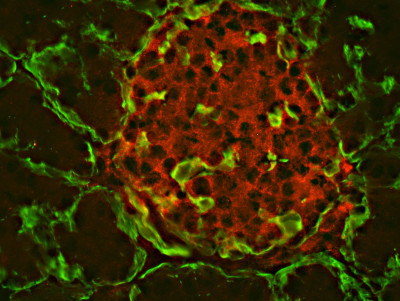Título del proyecto: “Role of Chemokine receptor nanoclustering in T cell homing to lymph nodes and Immunological synapses formation (NANHOMIS)”.
IP: Mario Mellado, Research group
Reference: PID2023-146301OB-I00
We are seeking enthusiastic and highly motivated PhD candidates interested in developing a thesis project in our lab through a contract (FPI) linked to our project “Role of Chemokine receptor nanoclustering in T cell homing to lymph nodes and Immunological synapses formation (NANHOMIS)”. Our group uses a wide variety of pioneering imaging techniques (FRET, TIRF, STED, etc.), alongside with more traditional tissue culture, biochemical and biomolecular techniques.

Candidates can send their CV by email to Mario Mellado or José Miguel Rodríguez Frade
The candidate should hold a university and master degree in life or biomedical sciences and an academic record above 7.5 (scale 1-10). Solid communication skills in English, previous research experience in molecular biology and additional experience in bioinformatics analysis will be valued.
During the duration of the contract the candidate will receive a strong formation in all type of techniques required for the work in a laboratory, specially, in advanced microscopy techniques. S/he will attend our departmental and institute seminars (CNB), and will participate in our laboratory’s weekly meetings and discussions of scientific articles. The training will include attending national and/or international conferences related to the research topic. Acceptance into the institute involves participation in the CNB PhD training program which covers topics like biological safety, ethics in science, presenting scientific data and writing scientific manuscripts. Additionally, the candidate will be incorporated into the CNB Thesis Advisory Program, ensuring comprehensive quality assessment and support for their professional growth and thesis achievements.

The predoctoral student will engage in collaborative efforts with international scientists, offering opportunities for international projection and the possibility for short stays in international laboratories, enhancing their research experience.
Project Summary: Chemokines constitute a low-molecular-weight (8-12 kDa) protein superfamily mainly involved in cell migration. Chemokines are crucial for many physiological functions and also are central to a variety of diseases characterized by inflammation and cell infiltration such as asthma, atherosclerosis, rheumatoid arthritis, multiple sclerosis, colitis, Crohn’s disease, experimental autoimmune encephalomyelitis (EAE) or psoriasis. In addition, CXCR4 and CCR5 are the two main co-receptors for HIV-1 infection, and some chemokine receptors also participate in tumor development and metastasis and in transplant rejection.
Chemokines act by interacting with a group of seven-transmembrane receptors coupled to G proteins. The chemokine receptors exist at the cell membrane as homo- and heterodimers and even as higher-order oligomers, reflecting multiple layers of complexity in the modulation of cell responses.
The proposal of this project is to analyze the functional relevance of ligand-mediated chemokine receptor nanoclustering in two distinct scenarios where chemokine receptors are required to initiate the adaptive immune response: i) the physiological homing of T cells to the lymph nodes and their intranodal circulation to stablish appropriated cell contacts, and ii) the formation of productive immunological synapses (IS) that contribute to T cell priming.


